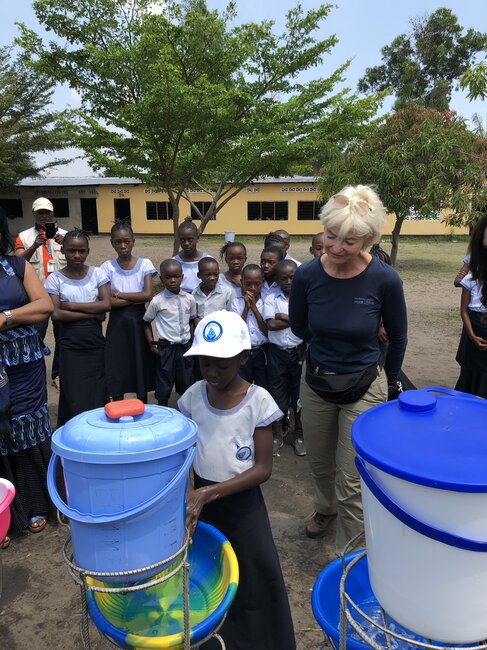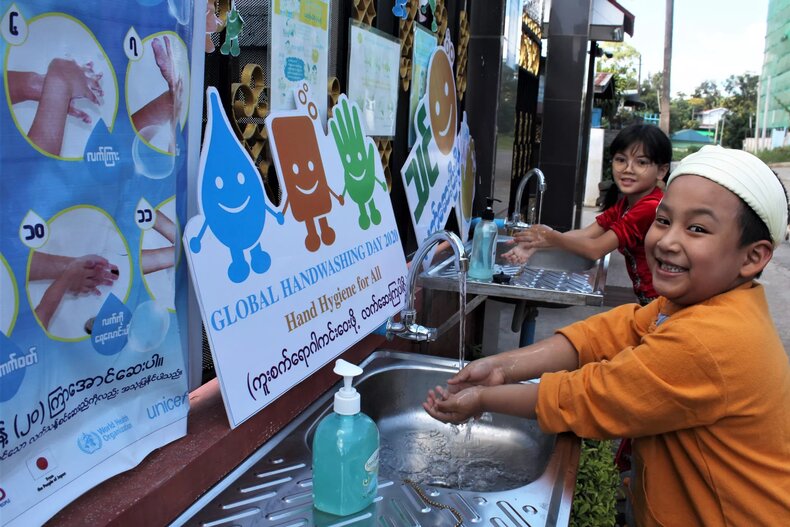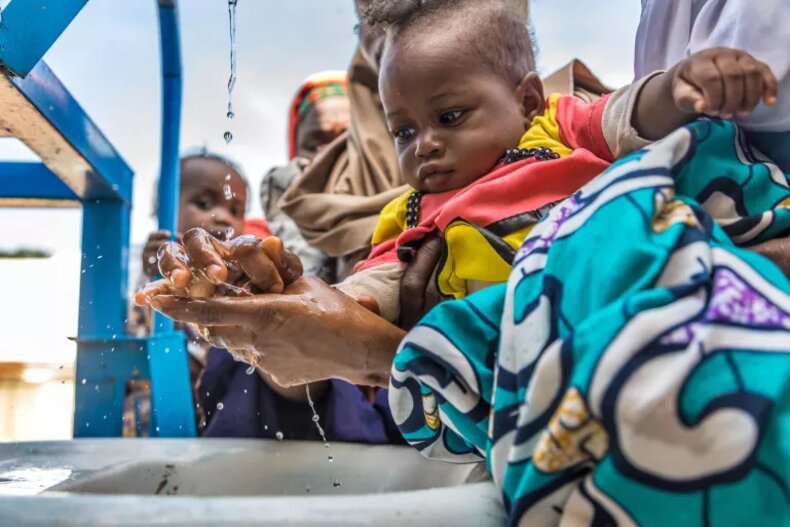

Every year, on the 15th of October, we observe Global Handwashing Day, a crucial reminder of the importance of proper hand hygiene.
Good hand hygiene is the cornerstone of safe and effective health care, a simple yet highly cost-effective measure that plays a vital role in protecting against a wide range of diseases, including pneumonia and diarrhoea.
However, global and national statistics reveal a stark reality: Inequalities in access to handwashing facilities remain a major challenge, even within the same countries.
Moreover, even when hand hygiene facilities are available, research shows that people, especially men, do not consistently use them.
Addressing these gaps requires greater political commitment and behaviour change interventions to ensure lasting improvements in hygiene practices.

One might assume that handwashing is an ingrained habit worldwide, but this is far from the case.
The numbers speak for themselves. Globally, over 2.3 billion people lack access to handwashing facilities with water and soap at home.
This issue extends to schools, where almost half lack such facilities, impacting around 802 million school-age children.
Even in healthcare settings, where hygiene is critical, roughly half of the facilities lack proper hand hygiene facilities at points where patients are treated.
As Ann Kathrin Linsenhoff aptly states, “The changes need to be made, but we are on the track towards them. Yet more investments in education, awareness, and hygiene facilities should be implemented.”

The importance of handwashing cannot be overstated.
It is a proven method to reduce the spread of various diseases, including diarrhea, respiratory infections, cholera, Ebola, COVID-19, and other neglected tropical diseases.
According to UNICEF Pacific, the consequences of poor hand hygiene extend beyond health. When children contract these diseases, they are often forced to miss school, resulting in a significant loss of education and learning opportunities.
The ripple effect of inadequate hygiene thus impacts not just individual health but also broader social and educational outcomes, particularly in vulnerable communities.

To address this global challenge, UNICEF has put forth a comprehensive strategy aimed at ensuring that hand hygiene becomes a widespread practice.
This approach focuses on three key areas:
Making Services Available:
UNICEF works to ensure that children, their families, and communities have access to appropriate handwashing facilities and supplies.
By supporting both local and global product innovation, UNICEF seeks new ways to bring affordable hygiene products to the most vulnerable populations.

Reaching People:
In collaboration with governments, UNICEF uses a variety of communication channels to promote handwashing.
From community health workers to local celebrities, and from social media to mass media campaigns, these efforts aim to raise awareness about the importance of hand hygiene.
Driving Policy and Monitoring Change:
UNICEF partners with governments to develop and implement policies and strategies that promote handwashing. This includes ensuring that schools and health-care facilities have proper hygiene infrastructure.
In collaboration with the World Health Organization, UNICEF also monitors handwashing practices in households, schools, and health-care facilities globally.

Global Handwashing Day serves as a powerful reminder that hand hygiene is not just a personal habit but a critical public health intervention.
While progress is being made, much work remains to be done, particularly in ensuring equal access to hygiene facilities and fostering consistent behaviour change.
By investing in education, infrastructure, and awareness, we can make significant strides toward a healthier, more equitable world.
“Proper handwashing is not only a safeguard against disease - it is a vital step towards achieving better health for all,” underlines Ann Kathrin Linsenhoff.
Yours
sincerely

